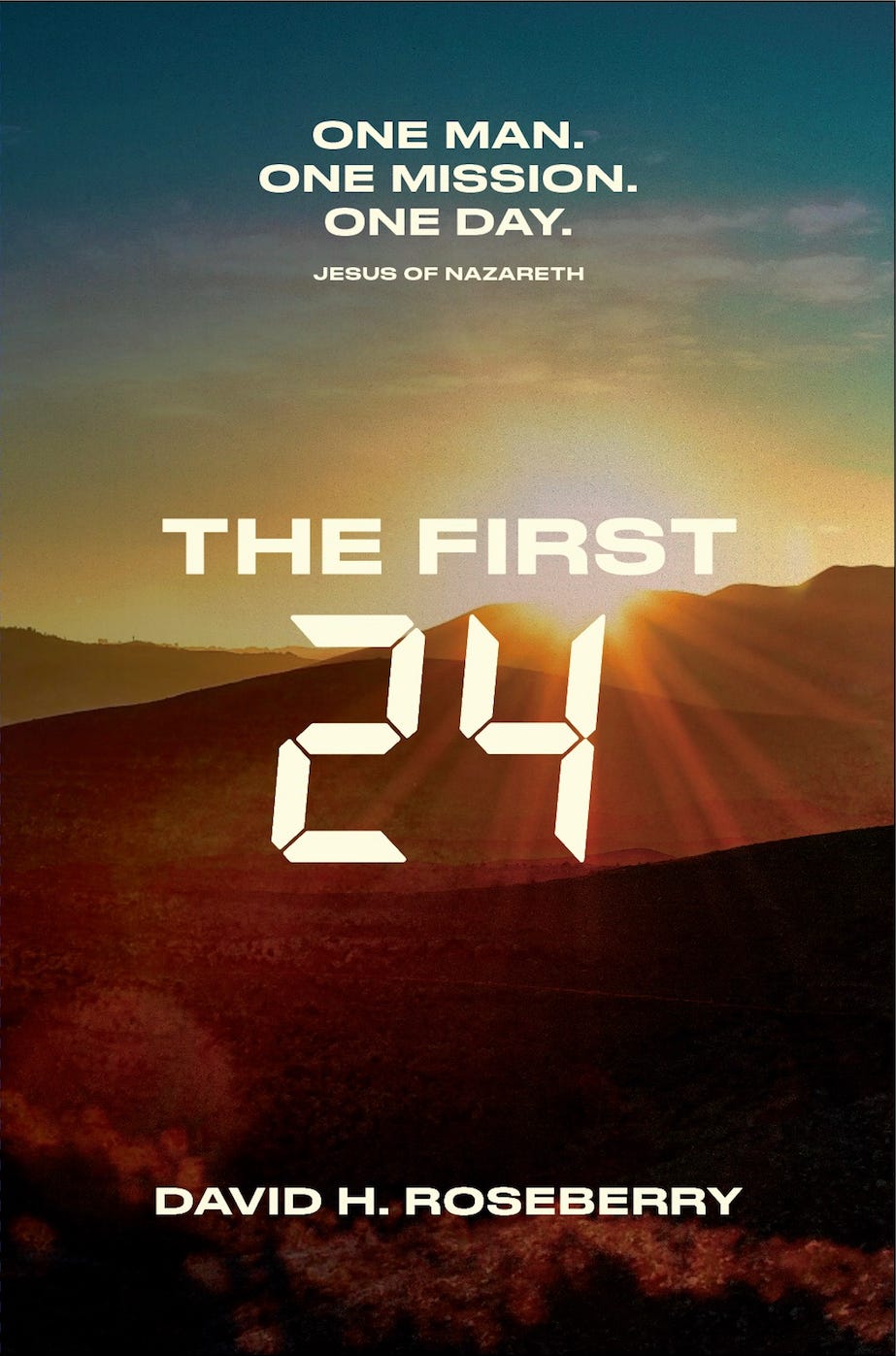How to Have Heated Arguments That Don’t Hurt or End with Hate - Revised and Resent
Christians Can Disagree Without Destroying
A Glitch in the Substack System prevented many readers from receiving this. I pulled it back, revised and re-edited it, and released it again on Sunday, September 21. If you read it, I invite you to read it again. D.
Pulling Back
Readers of The Anglican know I pressed pause this week. I needed time to pray and reflect on what had happened. The death of Charlie Kirk. And maybe just as sobering—the way people have reacted to it. Some of the responses have been terrible.
So I’ve kept quiet. I’ve read. I’ve listened. I’ve tried to take it in. Here are a few of my reflections. (So, I guess I haven’t kept too quiet.)
You’re Fired!
I wrote about how some people are getting fired for their comments about Charlie Kirk. Is that even fair? Read my thoughts here.
The Surge
I also wrote about “the Surge”—the bump in church attendance that’s already showing up in places. Pastors I coach are telling me about it. It’s real. Read about it here.
New to Faith?
Then I wrote a piece for those who were new in the faith. Essentially, it was a “How to Be a Christian” post. Read about it here. (It wasn’t restacked or forwarded as much as I had hoped, but perhaps it can live on.)
Charlie Kirk’s Unique Gift
Today, I want to share something important. A quality I saw in Charlie Kirk. A gift, really, I don’t see it much in myself. However, it is a gift I want to cultivate. Maybe you need it too.
What is it?
The ability to disagree with someone—sometimes fiercely—and still love them. Still care for them. Still respect them. Still refuse to write them off as a defective person.
That’s what this post is about. It is free, so feel free to share it.
But I hope you see the value of being a subscriber to The Anglican and that you will join us here as a free or paid subscriber.
It would mean a lot if you drop a ❤️ for this post.
Or share it with a friend.
And become a Paid Subscriber.
When Passion Gets Aggressive
I’ll start with a confession. When I get into a heated discussion, I don’t always handle myself well. I get flustered. I push harder. Or my mind blanks, and I get lost in my argument.
Sometimes, too often to tell the truth, I turn against the other person instead of staying with the issue. The truth is, my flesh gets the better of me.
I am a pastor with over 40 years of experience. I have dealt with people all of my life. But there is a part of me that gets very frustrated, tongue-tied, and hot-headed when I have arguments with someone.
Sometimes, even a mild debate boils my blood. Politics is a no-go zone for me.
I didn’t know Charlie Kirk as well as I do now. I’ve watched enough online discussions to know something about him.
He was chill.
He was open.
Honest.
Non-threatened.
I am sure he had his moments.
However, his position and demeanor were generally designed not to attack, but to attract.
I know only a few people like him. Only a few. They can argue a point with genuine passion and still stay calm and respectful.
They don’t back down, but they don’t get mean. They hold strong convictions without being harsh. And that draws people in.
That’s the paradox: passion without aggression.
I have a lot to learn.
Why Disagreeing Should Be Easier for a Christian
I've thought about this for a few days, and here's what I’ve concluded: Christians should be able to stand their ground in any debate, remain firm in their beliefs with greater ease, comfort, and peace than most others.
Why? Because Christians have resources that the world doesn’t—namely, the gospel itself.
When disagreements heat up, the flesh wants to win. But the gospel reminds us that we don’t have to win; Christ has already secured our future and given us our identity.
Remember this: The most important thing to keep in mind is that, in any discussion, argument, or confrontation with a non-believer about anything central to the Christian faith, our identity is not at risk.
It matters less that people know where we stand on every issue, and far more that we know on whom we stand—on Christ.
Church Fights in the New Testament
The New Testament makes clear that the early church was no perfect chorus of unified harmony—it was full of conflict, arguments, and misunderstandings. Paul opposed Peter publicly in Antioch (Gal. 2:11–14), he and Barnabas split sharply over John Mark (Acts 15:36–41), and whole congregations were divided over leaders, lawsuits, and the Lord’s Supper (1 Cor. 1:10–12; 6:1–8; 11:17–34).
False teachers, power struggles, and moral failures crop up in nearly every letter. Scripture doesn’t hide these clashes; it shows them so we’ll learn that the way forward is not in avoiding conflict but in handling it God’s way—with truth, with repentance, and love in Christ (Eph. 4:1–6).
Christians today need to know that we stand in a long, long tradition of contending for the faith and the implications of the faith for every generation.
We need to learn how to confront, contend, and connect with people who think differently from us—because most do.
So how do we argue?
Contend for the faith?
How can we be passionate and not aggressive?
Vocal and not violent?
The model for this kind of debate and conversation is given by our Lord Himself.
The Pattern of Jesus: Learn and Turn
Jesus had no problem debating people. He did it with love. His way wasn’t fire and brimstone.
It was story and presence.
He often began with a parable or a picture. Sometimes he asked a question. Sometimes he entered into a relationship. He became a friend.
Sometimes, he told a story, a parable, and used an object as a lesson.
“Consider the lilies” (Matthew 6:28).
“Look at the birds of the air” (Matthew 6:26).
“See this mustard seed” (Matthew 13:31).
“Whose likeness is on this coin?” (Matthew 22:20).
“Look at this little child” (Mark 9:36)
“There once was a man who had two sons” (Luke 15)
Whatever the form, the effect was the same: it suddenly dawned on people, “Hey, he’s talking about me!” Often he would, in the words of Emily Dickinson, Tell it Slant.
Tell all the truth but tell it slant
Tell all the truth but tell it slant —
Success in Circuit lies
Too bright for our infirm Delight
The Truth's superb surprise
As Lightning to the Children eased
With explanation kind
The Truth must dazzle gradually
Or every man be blind —
I love the last two lines: The Truth must dazzle gradually | Or every man be blind—.
It reminds me of how Jesus taught. He didn’t always announce, “Here is the truth!” He told stories about seeds, coins, sons, and sheep. He let the truth dawn on people slowly. The slant was not deceptive. It was mercy.
Perfect.
Here is what I said in The First 24:
Interestingly, Jesus rarely confronted ordinary people with direct threats of hell or eternal isolation.
Through parables, conversations, and stories, He drew sinners to see for themselves the seriousness of an unrepentant life. Some may object, pointing to Jesus’ warnings about judgment, and those passages are real.
But even then, His warnings usually came wrapped in story or personal encounter, not shouted in condemnation. In all His teaching, we never find Him preaching “fire and brimstone” sermons to common people.
His message was not “turn or burn” but “learn and turn.”
And that is how lives were truly changed.
As I point out in the book, Jesus DID confront others, but only two other types: the religious professionals and the demons. For everyone else, he was relationally connected before he made any moral objections to their lives.
This is important for me to remember, and perhaps it is why I needed to write this post. Jesus took the extra time to connect with people through friendship, time together, telling a story, relating a parable, or coming alongside them. He did not (as I think about it) feel that winning an argument was worth the denigration of a single soul.
Why?
People say they love change: new jobs, new fashions, new ideas. But being changed—that’s another story.
The Woman at the Well
Look at the woman at the well in John 4. She knows her shame. She keeps dodging, delaying, and distracting—anything to avoid the truth. Then Jesus asks her for water—a small human connection. And suddenly, the whole story flips. She runs back to town, saying the last thing any of us would ever want to shout: “Come meet the man who told me everything I’ve ever done!”
Why? Because the One who sees us is also the One who saves us. Exposure becomes freedom.
The Biblical Pattern of Debate
This runs right through the New Testament.
Paul in Athens reasoned with philosophers. He quoted their poets. He didn’t mock them. In Galatians, he stood up to Peter—but he argued the principle, not the man.
Peter, the same man who once swung a sword in Gethsemane, later told Christians to give an answer “with gentleness and respect.”
And the church was told to “speak the truth in love.” That’s how truth becomes gospel instead of weapon.
So the biblical rules aren’t complicated:
Truth with love.
Gentleness and respect.
Quick to listen, slow to speak.
Avoid foolish controversies.
Aim to build up.
Leave room for God’s work.
Counterintuitive Strength
The world thinks passion makes people combative. The louder the voice, the stronger the conviction.
But Scripture says otherwise.
This is what I (personally) need to remember:
The deeper the roots, the steadier the tree.
The stronger the foundation, the calmer the tone.
If my life is anchored in Christ, I don’t have to win every point.
I don’t have to shout anyone down.
I can stand firm without striking back.
That’s strength.
In Sum
It should be easier for Christians to disagree with conviction because we’re not defending ourselves. We’re testifying to Christ. He has already given us the Spirit of love, joy, peace, patience, kindness, and self-control.
So debate for us isn’t triumph. It’s testimony.
A Collect
Almighty God,
who gave your Son to be both truth and love,
grant us grace to hold fast to conviction
without surrendering gentleness.
Teach us to speak clearly,
listen patiently,
and witness faithfully,
that others may see Christ in us
and be drawn to his peace.
Through Jesus Christ our Lord. Amen.
Grace and peace,
The Anglican is the Substack newsletter for LeaderWorks, where I share insights, encouragement, and practical tools for clergy and lay Christians. I’m also an author of over a dozen books available on Amazon.
If you are a Paid Subscriber, thank you! Thank you for supporting The Anglican and the ministry of LeaderWorks. If you are not a subscriber, please consider becoming one today.













Thanks, David. Appreciate your identification in Christ, saved by grace. Good words, great Spirit. May we be a pleasing aroma to God and to the world!
Being in this political arena,because George is “running again” puts me in a situation where I’m always asked tough questions. I usually try and respond calmly and respectfully, but sometimes (you know me) it’s hard. Reading this today was very helpful. I want others to see Jesus and love in my heart first and see I’m being led by Him. It’s not all about me or political sides.
At the end of the day, I reflect and I’m at peace because the Lord has it ALL in His hands and whatever happens it’s in His plans. So really there is no need to worry about anything — alleluia !!!
Juanita